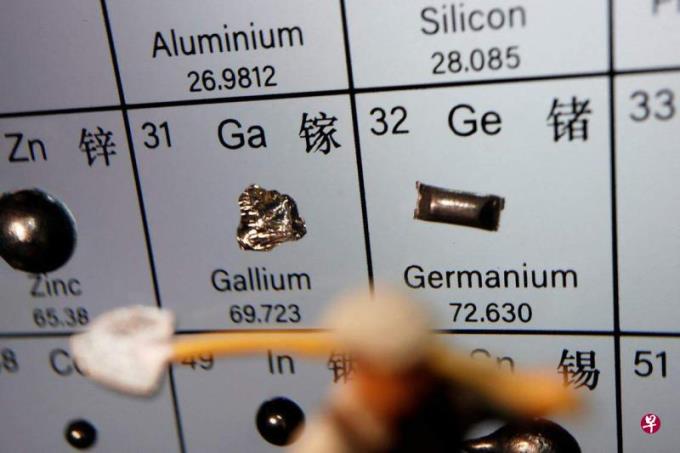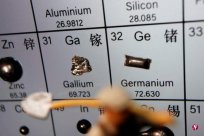
(Washington Composite) The United States stated that it resolutely oppose China to implement export control against 镓 and 锗, and will negotiate with partners and allies to solve this problem.China said that new measures do not target any particular country, and export control is not forbidden.
A spokesman for the US Department of Commerce on Wednesday (July 5) in an email statement, China said that China "these actions highlight the need for diversification of the supply chain.Strengthen the toughness of key supply chains. "
China recently announced that from August 1st , China has recently announced from August 1st .口 Implement export control measures for related items.China is an important producer of 锗 and 生产, and these two substances are also important raw materials for semiconductors and other electronic products.
Germanium is used for high -speed computer chips, plastics, as well as military equipment such as night vision equipment and satellite image sensors.Gallium is used for radar and radio communication equipment, satellite and luminous diode (LED).
The EU also expressed concerns about the export restrictions of the Hua
In addition to the United States, the European Commission also expressed concerns about China's export restrictions. The German Economic Minister Habeck was worried that China would expand its export restrictions to materials such as lithium, saying that it would "cause problems."
A spokesman for the Ministry of Commerce Shu Shuting Ting Ting on Thursday (6th) said at a press conference that the Chinese government implements export control in accordance with the law and does not target any specific country.Before the announcement, China had pre -reported pre -reporting through the Sino -US and China -Europe export control dialogue channels.
Shu Jianting also said that export control is not forbidden to export. If the export meets relevant regulations, it will be permitted.
She reiterates that export controls on the relevant items of 锗 and 锗, the purpose is to maintain national security.But analysts believe that this is a response to China's continuous upgrading of Chinese technological progress to Washington.
Washington is considering the implementation of new measures to restrict the export of micro -chip exports to China Gaogao.The United States and the Netherlands may also further restrict the sale of chip production equipment to China to prevent technology from being used by the Chinese military.
Beijing's last retaliation operation was in May. At that time, some domestic industries were banned from purchasing American memory chip manufacturers Meiguang Technology.
Analysts: If China -US relations cannot change the implementation of more rare earth export control
A number of analysts of the investment institutions Jefu Rui believe that the implementation of export restrictions on 镓锗 is the second and greater countermeasures in China after Micron's ban."The risk of rapidly upgrading the tension between China and the United States is not small. If this action cannot change Sino -US relations, it is expected that (China) will implement more rare earth export control."
On the other hand, after the Wall Street Journal reported on Tuesday (4th), , after cloud services from companies such as Amazon and Microsoft, Bloomberg also quoted people familiar with the matter and said that the United States is considering restricting China to obtain computing services through the Internet or cloud to curb China's development of artificial intelligence (AI AI (AI)Ability.
The person familiar with the matter said that this is the top priority of the US Department of Commerce.US officials hope to finalize this plan this summer, but the important details have not yet been determined.
People familiar with the matter also said that the United States is worried that being able to obtain cloud services from the outside may provide Chinese companies and the army with the computing power required for the development of the AI model.Restrictions on semiconductor devices applied.However, the use of cloud computing is more difficult to track than semiconductor exports, which makes regulatory work more complicated.



